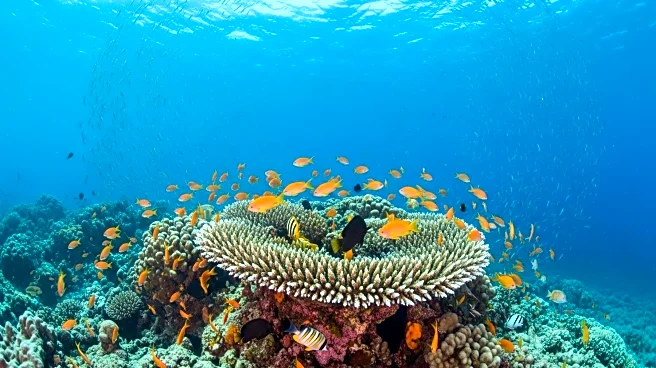What is the story about?
What's Happening?
Research published in Nature Communications reveals that marine heatwaves are disrupting ocean food webs, slowing carbon transport to the deep sea, and affecting the ocean's ability to buffer against climate change. The study, conducted by an interdisciplinary team, tracked biological conditions in the Gulf of Alaska, which experienced two major heatwaves. These events altered plankton communities and disrupted the ocean's biological carbon pump.
Why It's Important?
The disruption of ocean food webs and carbon transport has significant implications for climate regulation. Oceans play a crucial role in absorbing carbon dioxide, and changes in this process could accelerate climate change. The study highlights the need for long-term monitoring and research to understand the impacts of marine heatwaves on ocean health.
What's Next?
Scientists call for enhanced observation and modeling to predict future marine heatwave impacts. Policymakers are urged to support research initiatives and implement strategies to protect ocean ecosystems. Collaboration between scientific institutions and governments is crucial to address these challenges.
Beyond the Headlines
The study raises concerns about the long-term health of oceans and their role in regulating climate. Ethical considerations include the responsibility to protect marine environments and support communities dependent on marine resources.
















